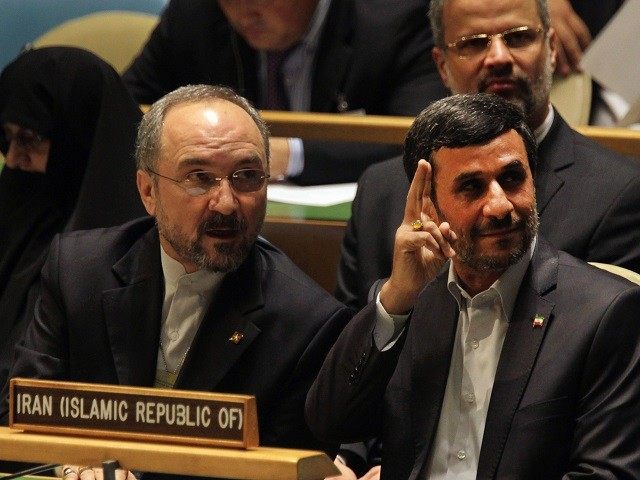Iran, with its puppet terrorist organization Hezbollah, is among the many nations implicated in the Panama Papers scandal, in which leaked documents from Panamanian law firm Mossack Fonseca revealed world leaders were stashing millions of dollars in offshore corporations.
The Algemeiner reports those leaked files expose “at least 33 people and companies blacklisted by the US government because of evidence that they’d been involved in wrongdoing, such as doing business with Mexican drug lords, terrorist organizations like Hezbollah or rogue nations like North Korea and Iran.”
Furthermore, one of those blacklisted companies has been charged with supplying “fuel for the aircraft that the Syrian government used to bomb and kill thousands of its own citizens.” The Syrian regime of Bashar Assad is a client of Iran, which has deployed troops to assist with putting down the bloody six-year insurrection against Assad’s rule.
The BBC also noticed that Mossack Fonseca fronted for six businesses owned by Bashar Assad’s cousin, Rami Makhlouf, who is said to be worth $5 billion, and has been under U.S. sanctions since 2008 as a “regime insider.”
The UK Guardian adds that Mossack Fonseca acted, apparently without its knowledge, as an agent of the Iranian oil company Petropars Ltd, which had been blacklisted by the United States, in an effort to drain funds away from Iran’s nuclear and ballistic-missile programs.
Bizzarely, the law firm only realized it was working in defiance of sanctions when another of its clients got in trouble for doing business with Petropars, and turned out to be using the same Virgin Islands P.O. box as Petropars. Apparently the same P.O. box is listed as the address for a sizable number of the shell companies Mossack Fonseca helped to create.
The Guardian goes on to note that while Mossack Fonseca executives wrote some angry internal emails after they learned about the Petropars connection, and the law firm terminated its relationship with Petropars and two of its subsidiaries, another company called Petrocom remains an active client, and it just happens to have a business address in Tehran, as well as using the same London accountant as Petropars.
Sarcastic Mossack Fonseca emails disclosed in the Panama Papers leaks suggest employees knew there was something fishy about Petrocom, with one wag responding to a request for the ultimate beneficial owner of the energy company by saying, “I think we could assume that would be Mahmoud Ahmadinejad, unless I’m mistaken.” At the time, Ahmadinejad was President of Iran.
Mossack Fonseca nevertheless insisted that it performs due diligence on all its clients, routinely resigns from engagements when it learns “a party to a company for which we provide services has been either convicted or listed by a sanctioning body,” and has never “knowingly allowed the use of our companies” by individuals having any relationship with sanctioned nations.
It is something of a moot point now, as the Guardian observes that Petropars was one of the many Iranian beneficiaries of Barack Obama’s nuclear deal, and is no longer blacklisted.
The Irish Times even found a link to Iran-Contra in the Panama Papers, in the persons of flamboyant Iranian-American political donor Farhad Azima and Saudi billionaire Adnan Khashoggi, who both employed Mossack Fonseca’s services, and were both important figures in Iran-Contra.
The lengthy and colorful Irish Times piece explores how a number of contractors for the CIA, and various intelligence agencies, “use offshore companies for personal and private gain,” as well as employing them as instruments for their official work as “spy chiefs, secret agents, or operatives.”
The Panama Papers also reveal that over the years, Mossack Fonseca incorporated companies named after James Bond films, villains in James Bond films, and imaginary companies mentioned in James Bond films.
The files coincidentally include correspondence from actual people who really were named “Austin Powers” and “Jack Bauer,” to boot. Less amusing for the firm is that some of its long-standing clients were notorious international espionage figures who were using their real names or well-known aliases.

COMMENTS
Please let us know if you're having issues with commenting.